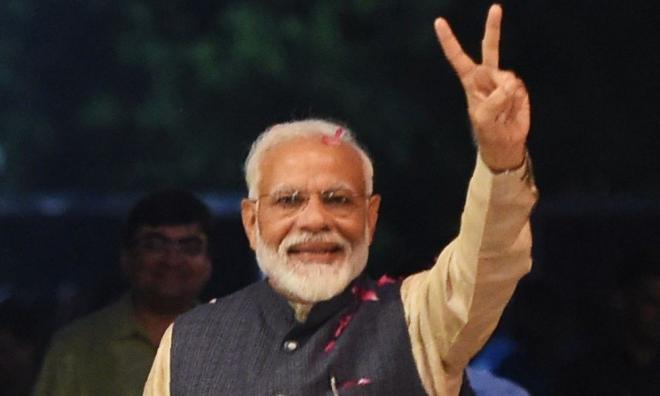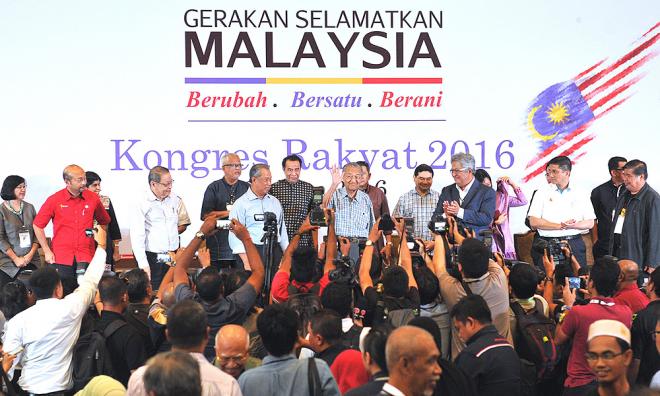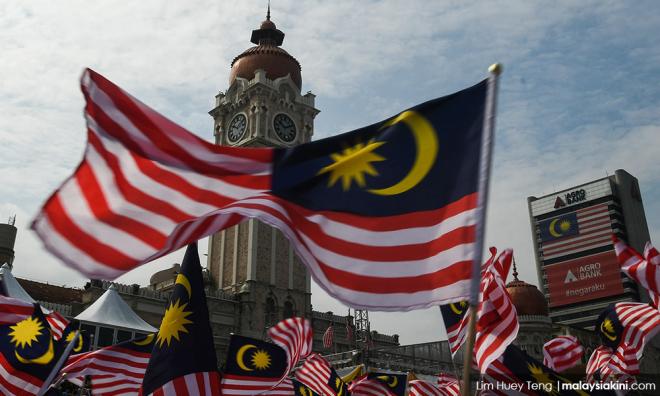
Published by Malaysiakini, Malay Mail, The Star & Sin Chew, images from Malaysiakini.
Malaysia works on five social contracts beyond the Federal Constitution.
The first, while richly storied but hardly shared in daily conversations, involves a delegation led by the late Tunku Abdul Rahman, with Tun HS Lee and Tun Sambathan in tow, to urge London to agree to a peaceful transition of power.
That led to the country’s independence on August 31 1957, only to be joined by Sabah and Sarawak on September 16, 1963. Had Singapore not been expelled from Malaysia in 1965, they too would have been part of the social contract as a gentlemen’s agreement in London was to grant legal citizenship to all Malayans and/or Malaysians.
The second social contract involves the importance of “Rukun Negara”, the national governing principles in 1970, which among others acknowledge the belief in God by all races. The original formulation of Rukun Negara until this day speaks positively of liberalism in the context of progressive politics. This is an element which Professor Chandra Muzaffar noted has been intentionally neglected over the last twenty years.
The third social contract involves a colour-blind affirmative action in the form of National Economic Policy (NEP) between 1979-1990. Unfortunately, the NEP while still in existence has been impoverished by the kleptocracy of the previous regime to the degree where even Mara cannot afford to send more Malay students abroad. Even its own Mara digital mall is suffering a terrible run of business due to poor execution.
The policies are mostly nice and good with noble intentions but unfortunately, the execution is far from satisfactory resulting in few hijacking the fruits.
The fourth social contract involves the agreement to respect the royalties and vice versa. The sultans, including, the governors in states like Sabah and Sarawak, would to the best of their abilities to maintain the rich diversity in various states, in every sense.
The final social contract, according to my favourite Professor, KS Jomo, would have Wawasan 2020, where all races ideally see themselves as Malaysians, with equitable income and a comfortable social safety net to cushion their retirements and health care benefits in old age. Vision 2020 was the idea mooted by Dr Mahathir Mohamed.
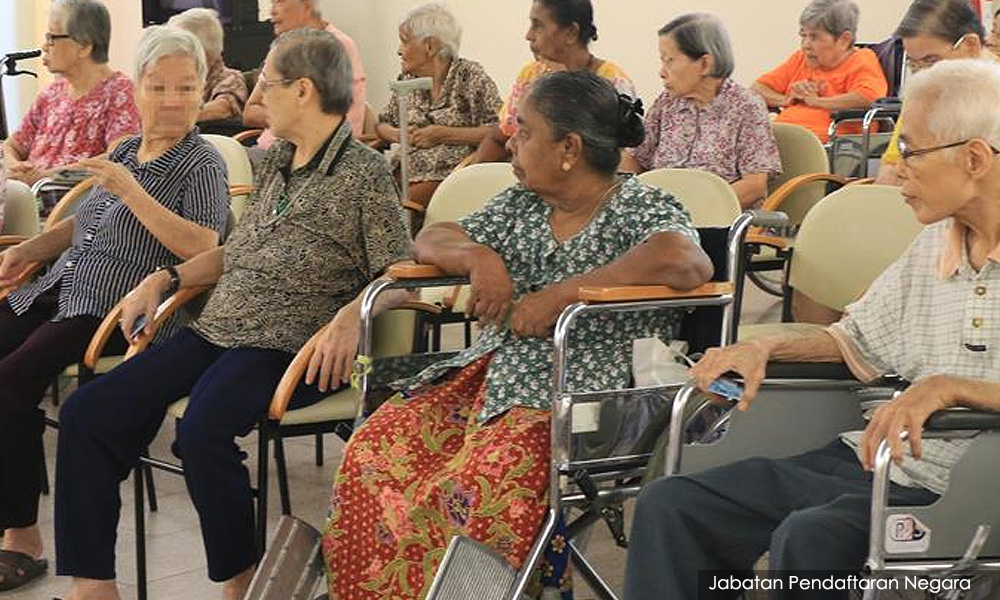
By 2023, more than 15 percent of Malaysia’s population will be over the age of 60 which effectively makes Malaysia an ageing society by the definition of the United Nations.
All the social contracts are the key edifice of Malaysia. But as can be seen from the fifth and final one, economic prosperity is a “black swan event”. No one predicted, or knew, by 2018 that China would reach such a level of economic sophistication to be able to compete head to head with the United States. So much so, they are now trapped in a high tech trade conflict.
Malaysia cannot move forward based on the regurgitation or repetition of the five social contracts only. That would be akin to using the economic and political model of 1950-2000 to steer the country forward. Old solutions cannot, and must not, be used to solve current or new challenges in 2019 simply because it is devoid of the simple logic of suitability.
Governance, according to Professor B Jessop, is indeed “steering” beyond “who gets what, when, and how”, a definition by Professor Harold Lasswell. It is also beyond what the late Professor David Easton called “the authoritative allocation of values”.
Governance, ironic as it may sound, involves what Professor Alex Callinicoss called the “abolition of politics”. In fact, the original view of Karl Marx called for a state that can abolish “politics” too. That is, of course, a utopia, and true enough, the Soviet Union collapsed by 1990.
If Malaysia once decays into a kleptocracy – only to be revived into a democracy once again – it means the country is just as capable of future decay, if bad rulers are once again at the top. As Professor Francis Fukuyama said: “If the state can be formed, it too can decay.
To prevent decay from setting in, Malaysia needs to look at the three areas where people will take “order” for granted.
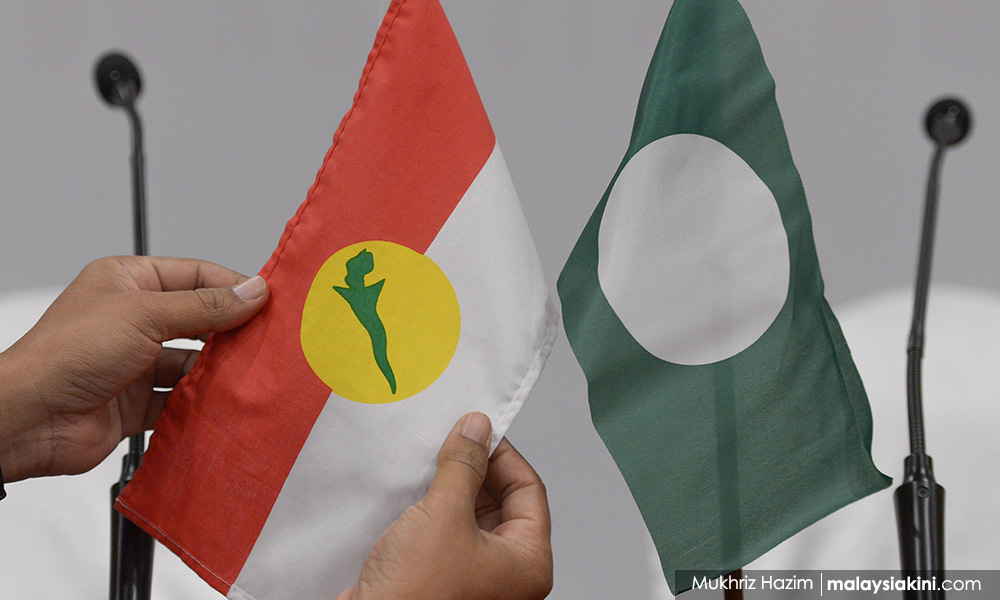
First, multi-racial peace cannot be assumed as a given, no matter how peaceful and peaceable most Malaysians are. Thus, the politics of race as purveyed by Umno and PAS must be resisted as they are already allegedly corrupted by vested interest and money, indeed to save themselves from being put behind bars rather than to redeem the dignity of the Malays and Malaysia. Their return must be checked at all costs.
Secondly, Malaysians should not further assume that the state is there to extract oil and gas from the ground, export them at a premium and use such largess to adopt a policy of blind subsidy. Universal Basic Income (UBI) can be considered for all poor people, but all able-bodied men and women must work hard and smart to adapt themselves to the digitised world.
Third, the politics of Pakatan Harapan cannot be based on a coalition of the possibility of a more creative form of coalitions, such as the rumours of Hishammuddin Hussein leading a new coalition that will eliminate the role of DAP and Amanah.
Harapan, especially the presidential council, must stay strong, honouring all promises in the election manifesto and test themselves against the winds of global economic disruption based on this template.
Reinventing Malaysia means de-constructing old ideas of Malaysia without harming the social contract. And, stick to everything in the manifesto as a run-up to the 2023 General Election, which among others means honouring the mother of all – delivering what the rakyat ones best encapsulated by five deliverables:
- Mitigating costs of living
- Enhancing the quality of living through holistic and relevant education, better purchasing power et cetera
- Creation of sustainable and credible jobs
- Providing affordable healthcare
- Ensuring affordable homes
Businesses also need certainty, not an absolute certainty, but reasonable certainty with regards to the right economics policies or direction as Malaysia, as studies show, seems to have a high correlation between political leadership and economics performance unlike Japan, South Korea and even Thailand.
Harapan needs to address this to attract the right foreign direct investments (FDIs) to re-energise the Malaysian economy. Time and tide wait for no man, as they say.
Dr. Rais Hussin is President & CEO of EMIR Research, an independent think tank focused on strategic policy recommendations based upon rigorous research.
刊登在:星洲网 (Sin Chew).
大马人是超越联邦宪法的5大社会契约下合作的。第一项,涉及丰富的故事,但很少在日常生活中分享,即已故东姑阿都拉曼,与敦陈祯禄和敦善班丹携手前往伦敦进行和平权力移交谈判。这从而让我国在1957年8月31日取得独立,然后在1963年9月16日沙巴和砂拉越加入。如果新加坡在1965年没有被驱逐出大马,他们也将是社会契约中的一部分,因为在敦伦达陈过的协议是授予所有马来亚人和/或大马人合法的公民身份。
第二项社会契约涉及《国家原则》的重要性,这是在1970年制定的治国原则,其中包括所有种族承认的信仰。《国家原则》的制定,直到今天,仍然是在进步主义背景下所指的自由主义;也是詹德拉博士所指,在过去20年内被有意忽略的元素。
第三项社会契约,涉及一种色盲的平权措施,其形式是在1970年至1990年落实的国家经济政策(NEP)。不幸的是,仍然推行的新经济政策因前朝的盗窃统治而陷入困境;甚至连玛拉也无法将更多马来人送出国读书。甚至连其玛拉数码城也因为经营不善而面临惨淡经营。这些政策大多数都很好,且有很高尚的意图,但不幸的是执行效果不太理想,而且有人还骑劫了其成果。
第四项社会契约涉及尊重特权的协议。苏丹,包括沙巴和砂拉越等州属的首长,竭尽所能确保在各方面维持各州属丰富的多样性。
第五项社会契约,据我最喜欢的佐摩教授的说话,是2020年宏愿,即所有种族都将自己视为大马人,拥有合理的收入和舒适的社会保护网,以减轻他们的退休和老年医疗福利。2020年宏愿是时任首相,也是现任首相,敦马哈迪提出的想法。
到了2023年,大马15%的人口将超过60岁;根据联合国的定义,大马实际上成了一个老龄化社会。
所有社会契约都是大马的关键部分。但从第五即最后一项社会契约可以看出,经济繁荣是一个“黑天鹅事件“。没有人可以预测,或知道,到了2018年,中国会达到足以和美国抗衡的经济水平;以至于让他们陷入高科技贸易冲突中。
大马不能仅仅靠著重复使用这五大社会契约而继续前进。这就相当于在使用1950年至2000年的经济和政治模式来领导国家前进。由于这种不合时宜的简单逻辑,旧的解决方法不能也不应该用于解决2019年的新挑战。
治理,根据鲍勃·雅索普教授,是“掌舵”多于哈罗德 ·拉斯威尔教授定义的“谁得到了什么、何时及如何得到”。这也超越了已故大卫·伊斯顿所指的“社会价值的权威性分配”.
治理,听起来很讽刺,还涉及 阿列克斯·卡利尼科斯教授所提出的“废除政治”。实际上,马克斯的原始观点也是要求建立一个可以废除“政治”的国家。当然,这是一个乌托邦,而且确实如此,苏联在1990年垮台了。
如果大马曾经沦为盗窃统治,然后又再次崛起成为民主国家,这也意味着这个国家未来也很可能朝向衰败;如果被坏的统治者再次掌权。正如法兰西斯福山教授所说的,如果可以建立一个国家,那么它也可以走向“衰败”。
为了防止衰败,大马需要研究人们将其视为“理所当然”的三个领域。首先,不能假设种族和平是必然的;就像大多数的大马人所处于的和平和平静氛围。因此,必须制止巫统和伊斯兰党所提倡的种族政治,因为他们已经受到利益和金钱的腐蚀,他们是为了自己免于受到法律制裁,而不是为了挽回马来人和大马人的尊严。我们必须检视他们所作的一切。
其次,大马人不应该假设国家能够继续从地下开采石油和天然气,然后再高价出口,并利用如此庞大的资金来盲目地落实补贴政策。可以考虑为所有贫困群体落实“全民基本收入”(Universal Basic Income),但所有身体健全的男女必须工作并适应数码世界。
第三,希望联盟的政治,不能建立在有更多可能性的联盟合作之上。例如,传闻指希山慕丁将会建立新联盟并抛开行动党和诚信党。希盟,特别是党主席理事会,必须保持强硬立场,兑现大选宣言中的所有承诺,并使用这种模式来接受全球经济动荡的考验。
重塑大马意味著在不破坏社会契约的前提下颠覆大马的旧观念。并且,在2023年大选之前坚持宣言中的所有承诺;其中包括尊重所有人,落实5大承诺:1.降低生活成本,2.实际提升生活、教育素质,更强的购买能力等,3.可持续和高价值的工作,4.提供可负担的医疗服务,5. 确保可负担房屋。
企业需要确定,不是绝对确定,而是合理的确定,经济政策或方向是否正确,因为大马,如研究所指的,政治领导层和经济表现之间有高度的关联,不像日本、韩国甚至泰国。希盟必须解决这个问题以吸引适合的外国直接投资(FDIs)来振兴大马经济。正如他们所说的,时间和浪潮永远不等人。
莱斯福贤是EMIR Research的总裁兼首席执行官,EMIR Research是一个独立的智囊团,专注于根据严格的研究提出战略政策建议。
